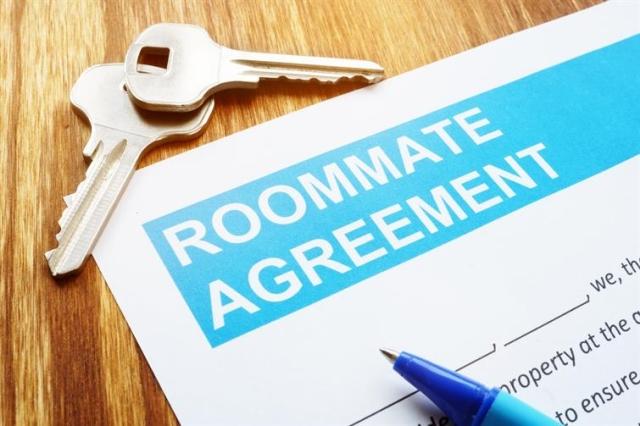Renting with roommates means many things, including paying less in rent, splitting utilities, and having someone to help keep the apartment tidy. Though having a roommate has many benefits, things don’t always work out, and you may find yourself looking for a way to remove a roommate from your lease. Whether your roommate is repeatedly not paying rent or lacking respect for you, your belongings, or your apartment, you’re likely frustrated and in dire need of a solution to your problem.
Review Your Lease Agreement
First things first: review your lease agreement before you make any rash decisions. You and your roommate should each have your own individual lease, and on that agreement you will find what your options are should one of you want to break the lease (or propose for the other to be evicted). Your lease agreement will give you quick answers to your questions regarding whether you can remove a roommate from your lease or not.
Can You Evict Your Roommate?
Despite your situation, you cannot legally evict a roommate yourself (unless you’re also the landlord of the unit and there is probable cause). However, you can discuss the option of eviction with your landlord or property manager, depending on what the grounds for eviction are. For instance, if your roommate damages the property, repeatedly neglects to pay their rent, or violates their lease one way or another, your roommate may stand to be evicted by the landlord or property manager. It depends on the violation, the lease agreement, apartment management, and your state and local laws regarding the subject.
What are Your Legal Options for Removing a Roommate?
You cannot force a roommate out of your apartment or remove their name from the lease simply because you want them to leave. You have to consult with your landlord or property manager and be sure that everything is done the right way. It’s less than desirable to be in this situation, but always check your state and local laws to see what your actual options are. You can:
Try to mend fences with your roommate.
If the situation is fixable, it’s probably in your best interest to smooth things over. This way, you won’t have to deal with the consequences of breaking your lease or finding a new roommate. If the two of you cannot come to a resolution, then you still have other options.
Break your lease and move to a different apartment.
Getting out of the apartment (if your roommate isn’t willing to leave) is a legitimate option. Unfortunately, this means you’ll be breaking your lease which is going to come with some heavy consequences, such as paying an extra two months’ rent. Breaking your lease should ideally be a last ditch effort to get out of a negative situation. If you have a documented eviction or a broken lease agreement on your rental record, it could possibly affect your chances of being approved at another apartment, not to mention you’ll have to hand over a big chunk of change for breaking your lease.
Suggest that your roommate move out.
If you don’t want to break the lease yourself, you could suggest to your roommate that they move out instead If they agree to this, and are equally fed up with cohabitating, then you can be free of this roommate situation for good.
Find a new roommate to sublease for them if they leave.
If your lease allows subletting, and your prior roommate breaks their lease and moves out of the apartment, then you can find a new roommate to sublet their room. If not, discuss your options regarding getting a new roommate with your landlord or property manager.
Discuss the Options With Your Property Manager
If you signed a joint lease with your roommate, meaning that you are both equally responsible for the entire apartment and the cost of rent, you will still have to pay their portion of the rent if they break their lease or are evicted. If you signed individual leases, then their share of the rent will likely not be your responsibility, but check your lease and discuss this with your property manager to be sure.
Though your property manager or landlord would like to avoid evictions and removing anyone from a lease, it’s best to discuss your options with them so that they are well aware of the situation and can do what’s necessary. If there is probable cause for your roommate to be removed from the lease – if they’ve damaged the property, neglected to pay rent, been charged with a serious crime, or have shown any signs of being a danger to others – then your property manager can (following their local and state laws) remove the roommate from your lease and evict them if there is no other option.
If your roommate isn’t on the lease
Typically, all adult tenants living in an apartment must sign their own lease agreement. If you have a roommate living in your apartment who is not on the lease and is not approved to live there by the landlord or property manager, then you can try to give the roommate notice to leave yourself. Your landlord or property manager may have the right to evict you for allowing another person to live in your unit who is not on the lease agreement, therefore violating the terms of your own lease agreement. It depends on your landlord, your state and local laws, and your signed lease agreement.
Though we hope you can resolve your roommate issues without facing evictions or broken leases, sometimes fences cannot be mended. And if this is the case, you need to read your lease thoroughly, inform your landlord or property manager of your issues, and discuss what your legal options are for this specific situation. Best of luck, my fellow renters.






